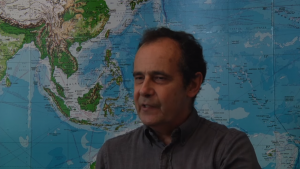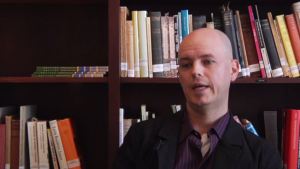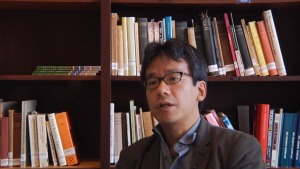OECDのPISAとメディアのセンセイショリズムが教育論争に与える影響
Memo #47 – 2000年以来3年毎に実施されている経済協力開発機構(OECD)のPISA(Programme for International Student Assessment)が、参加国の教育政策に大きな影響を与えている。この国際学力テストは、義務教育終了時点(15歳)の子どもたちの学習に関する幅広いデータを提供することを意図しているが、とりわけテストの平均値を基にした国別ランキングが注目を集めている。国内の研究者、政治家、官僚、コメンテーターらは、現行の教育政策を批判または正当化する道具としてこのランキングを用いるが、とりわけランキングに特定の解釈を与えて、それを社会一般に流布するメディアは、PISAが一国の教育政策に与える影響を大きく左右する。
Misinterpreting Globalization in the Context of Japanese Education Policy
Memo #43 – In a recent keynote address to the annual meeting of the Japan Studies Association of Canada hosted by UBC’s Centre for Japanese Research, Takehiko Kariya (Oxford University) argued that many changes in educational policy in Japan in the past fifteen years have been motivated by an understanding of globalization in terms of a knowledge economy. Policy makers were mistaken in this understanding. Instead, another impact of globalization has become more visible recently in Japan: the decline of full-time, long-term jobs. Rising inequality and lack of career opportunities rooted in a class-based distribution of learning competency, or the ability to learn, are being exacerbated rather than ameliorated by misguided educational policies.
Analyzing a Potential President Obama Visit to Hiroshima or Nagasaki
Memo #42 – A potential visit by President Obama to Hiroshima or Nagasaki to acknowledge victims of the nuclear attacks would help U.S.-Japan relations. But it may also alienate Asian countries that suffered wartime atrocities by Japan.
Lessons from Rebuilding Kobe after the 1995 Hanshin Earthquake
Memo #40 – The Great Hanshin earthquake devastated Kobe on January 17, 1995, leading to 6000 deaths and the destruction of over 200,000 homes. Beyond immediate reconstruction and recovery, the book, “Reconstructing Kobe: The Geography of Crisis and Opportunity” examines the long-term planning implications of the disaster. What were the city’s objectives in rebuilding urban areas? How were the hundreds of thousands of displaced people housed? How was Kobe’s urban economy affected?
Japan’s Beer Industry a Window to the Past
Memo #37 – Japan’s microbrewing, or ji-biiru (地ビール) industry has gained increasing attention in recent years, fuelled by a host of entrepreneurs with both creative recipes and a flare for showcasing Japan’s lengthy history of beer production. Until 1900, Japan was home to well over a hundred small brewers, most of which lasted just a few years. The ji-biiru boom is once again witnessing a trend toward the production of many small, local craft beers. Many of these startups have dusted off old brands and labels, and are often claiming to have been “established in 1885” or thereabouts, when in fact they are new firms. This modest challenge to the market dominance of megabrewers like Sapporo, Kirin, and Asahi is fuelled by consumers’ preference for different or local flavours. It is prompting the leading firms to add similar products to their stable of established brands.
Domestic and International Japanese Politics in the 21st Century
Memo #35 – In this interview, Dr. Masaru Kohno, Professor, School of Political Science and Economics, Waseda University, discusses the future of Japanese politics in light of recent developments. Japan’s new ruling party will continue to face constraints and challenges.
Disputed Islands Crisis between Japan and China: Power Shift and Institutional Failure
Memo #24 – Japan and China just experienced one of their most intense confrontations in recent memory over the disputed Senkaku/Diaoyutai Islands. This is more than an oddly outdated conflict over Westphalian sovereignty in a period of intense globalization. It is about the shifting balance of power and the absence of bilateral and regional institutions to manage the shift.
65 Years After The Asia Pacific War: The End of History Politics?
Memo #15 – It is not that the contentious issues have been resolved, or that a general history lovefest has broken out across East Asia. But international exchanges over historical controversies have been toned down, especially between South Korea and Japan. The 65th anniversary of Japan’s surrender passed quietly on August 15th, 2010. The U.S. ambassador to Japan’s participation in the ceremony to commemorate the atomic bombing of Hiroshima on August 6th was the most commented-on element of the anniversary.
Courts Decide On Work Hour Practices At Toyota And McDonald’s In Japan
Memo #4 – Working hours, wages, and health have grabbed headlines with the recent strikes at manufacturing plants in China. The William L. Holland Prize-winning article in Pacific Affairs in 2009 examines working conditions in Japan and the outcome of several recent court cases intended to limit work hours at Toyota and McDonald’s.



